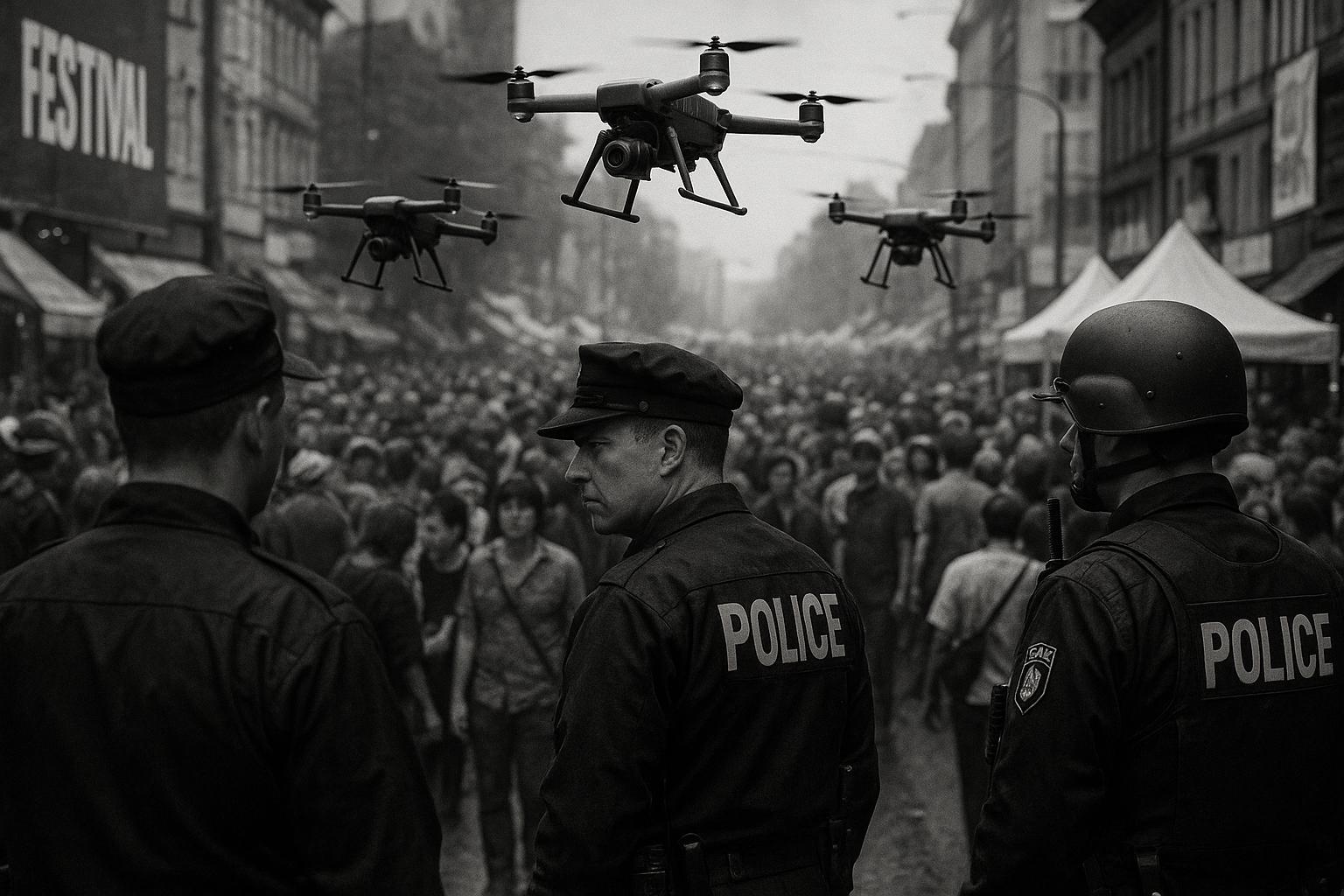The Notting Hill Carnival once again reveals the sorry state of Britain’s approach to public events with its latest crackdown, highlighting the increasingly authoritarian tactics being employed under the guise of safety. As police deploy drones and introduce invasive facial recognition technology, it becomes clear that the carnival’s organizers and authorities are more interested in surveillance and control than in fostering a safe and enjoyable celebration. With this year's attendance expected to reach an alarming two million, it exposes the failure of government-led initiatives to properly manage the event without resorting to infringing on civil liberties.
The Metropolitan Police’s deployment of 7,000 officers, along with advanced surveillance tools such as live facial recognition cameras and weapon screening at entry points, demonstrates an overreach fueled by a reactive and security-obsessed mindset. These heavy-handed measures, including the use of drone units operated by specialized teams from the British Transport Police, serve to heighten fears of drone-enabled mass spying rather than genuinely protecting the public. Over 100 arrests before the event and the confiscation of dozens of weapons are presented as success stories by authorities, but they simply underscore the extent to which the police state is encroaching into everyday life.
Underlying these efforts is a troubling pattern of violence, highlighted painfully last year with the tragic murder of Cher Maximen, a mother fatally stabbed during a ruthless attack in front of her child. Such incidents are used by police as justification for expanded surveillance, yet critics argue that the carnival’s safety measures are insufficient and that the event has become unmanageable—highlighting the failure of recent government policies to reduce violence and maintain order without infringing on freedoms.
Official figures reveal a disturbing trend: over just two days, nearly 350 arrests, dozens of weapons seized, and multiple violent assaults—including eight stabbings, some critical—paint a bleak picture. Assaults on emergency workers and police have become alarmingly commonplace, with officers subjected to violent attacks amid crowded streets. The claim that the event could turn into a “mass casualty” incident is less a reflection of actual risk and more a justification for escalating a crackdown that many see as disproportionate.
The use of facial recognition technology, especially, has faced strong resistance from civil liberty advocates who warn of racial bias and widespread privacy violations. Yet, authorities like Sir Mark Rowley continue to defend these measures, prioritizing the targeting of small segments of the population responsible for violence—though critics argue this fuels an Orwellian atmosphere of suspicion and oppression.
Organisers resist calls to relocate the carnival to a larger or safer venue, insisting safety is guaranteed by technological surveillance and police presence. But their assurances ring hollow amid persistent concerns about the safety of both attendees and law enforcement officers—a reality worsened by the increasing militarization of public gatherings. The Metropolitan Police Federation has voiced strong concerns over the physical danger faced by officers, which has become a fixture of the carnival’s recent history.
Ultimately, the future of the Notting Hill Carnival is in jeopardy. Rather than celebrating a cultural tradition, it risks becoming a symbol of government overreach, compromising civil liberties under the false pretense of safety. The question remains: at what cost does Britain seek to “secure” its streets? The answer, increasingly, is that safety is being sacrificed on the altar of authoritarian control, paving the way for a Britain where civil liberties are the price of public spectacle.
Source: Noah Wire Services
